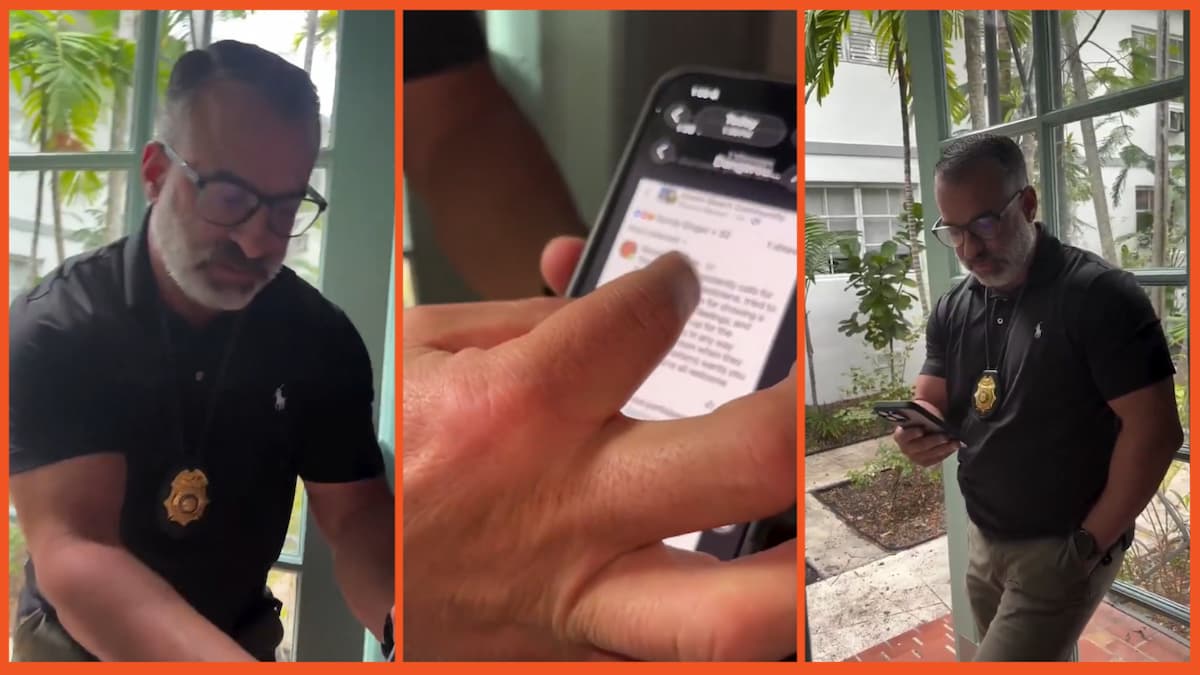
All ten episodes were provided prior to broadcast.
Complaints about millennials seem about as common as selfies at a tourist trap these days. It’s this ubiquity of generational hot takes that makes Search Party’s premise a little worrisome at first. TBS bills the new series — set for rapid release from November 21 to 25 — as a dark comedy about a group of “self-absorbed 20-somethings” wrapped up in a strange mystery after an old college acquaintance unexpectedly vanishes. Co-creators Sarah-Violet Bliss and Charles Rogers dubbed it a millennial satire. But it’s more playful than scathing, and there’s plenty on its mind.
Search Party drops into a gentrified Brooklyn (Williamsburg, specifically) full of rooftop parties, twee chic clothing, brunch and people mostly trying to outdo each other. A poet MFA named Chantal Witherbottom has gone missing after self-publishing a collection of work. Dory (Alia Shawkat) notices her long lost not-quite-friend on a poster somewhere in town and makes it her mission to find her. She’s just as invested in tracking down Chantal as she is in resolving her own existential quest for meaning.
She’s not alone, though. Every Nancy Drew needs a clue crew, after all, and this one is a riot. In the lineup: woefully clueless boyfriend Drew (John Reynolds), resume-stroking multi-hyphenate Elliott (John Early), insecure but equally narcissistic actor Portia (Meredith Hagner), and suave journo Julian (Brandon Micheal Hall). Together, they form a veritable band of ill-prepared detectives.
Shawkat is endlessly endearing, whether she’s righteously cussing out Drew for his antics or quietly crying after a brutal job interview. Reynolds digs admirably into his own role, bringing enough Muppet-faced charm to actually make Drew redeemable, while Early and Hagner consistently deliver an espresso shot of well-dressed egotism. They’re delightfully cartoonish and empathetic when necessary. Hall’s turn and his character arc add welcome touches of subtler allure.
Bliss and Rogers — who co-wrote and co-directed the season’s ten episodes — have been working together since they met in grad school for film. Their experience writing for Wet Hot American Summer: First Day of Camp with Michael Showalter (who taught them at NYU and helped them link up with production company Jax Media) allowed them to hone their love for and skill in crafting strong characters, which Search Party puts on full display.

Jokes hit the hardest here when they’re jabbing at a smorgasbord of entitlement and self-absorption. For instance, Elliott and Portia especially seem to need frequent reminders that Chantal may legitimately be in danger. It’s hilariously appalling to watch both of them weasel out of a tense situation at the exact moment Dory needs them the most; he takes a phone call about a book deal, and she heads off for a drink with the fetching bearded whatshisname she just met.
The show skewers the way these privileged folk blatantly disregard one another. Dory repeatedly corrects her friends when they excitedly debate who might have killed Chantal (she’s still alive). Later, a group of realtors laugh loudly and proudly at the thought of pushing a troubled former member of their ranks in front of a train. In this world, people usually feign concern at best and backstab each other at worst.
Search Party also takes a fair share of punches at social media culture — Chantal’s family and friends wear buttons emblazoned with #IAmChantal after her disappearance — but it’s much more concerned with the real life fronts people put up to seem hipper and holier than thou. And it often exposes the inner sadness and self-loathing beneath the outer live-laugh-loving.
Elliott is the first to tell anyone about his litany of projects and connections, but he still can’t figure out how to commit to his boyfriend. Portia glows with pride when she lands a role on a beloved TV show, but her mother evidently couldn’t care less. Dory feels a little more purposeful while swept up in the case, but she still doubts herself.
Even in its darkest or most biting moments, the show manages to keep things witty. Its multiple genres are well tended in the complicated plot, and even the more soap opera-leaning logic never seems convoluted. Bliss and Rogers juggle tones of pulp fiction and noir with screwball comedy and mumblecore, shifting effortlessly between silly and serious.
Political commentary sometimes feels muddled, or at least inconsistent. The critique rings clear when Elliott organizes a voluntourism-motivated campaign called “Pour” to send elegantly designed glass water bottles to Uganda (he announces the effort at a glitzy gala). Another pair of sequences murkily deals with Portia’s in-universe casting as a Latina character. The director suggests the whitewashing was hand-waved because “no one wanted to be confrontational.” Portia’s mother later criticizes her daughter for “basically stealing from the Latina community,” to which Portia obliviously responds, “You watched it” with a gratified smile.
More confusing is a scene in which Dory tells an unhelpful cop “I guess I’ll let you get back to shooting black teens, because that’s obviously all you do.” It’s hard to tell if the line is played straight or not; it’s tossed off far too dismissively to carry the proper gravity. Later on, Portia offers a throwaway suggestion to divert a stressful dinner conversation to the “political situation happening in our country.” Her euphemistic approach matches the one the script sometimes takes. The show is definitely aware of its characters’ comfortable lifestyles, and it’s particularly leery of covert and overt forms of misogyny, but Search Party occasionally seems to want to have its socially conscious cake and eat it, too.
Still, Bliss and Rogers have crafted something special here. They blend humor and suspense almost flawlessly over ten marathon-ready episodes, and their cast carries the quirkier parts with aplomb. Search Party is smart, surprising, and builds to a mightily disturbing first season coda. Another round can’t come soon enough.










Published: Nov 18, 2016 12:26 pm